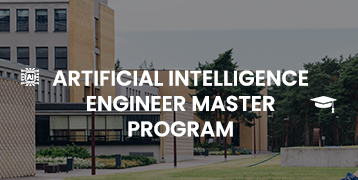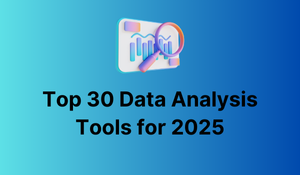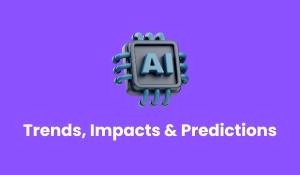
Top Data Science Jobs
If you study data science, then you get the chance to discover a number of exciting job roles in this domain. The important job roles are given below:
- Data Scientist
- Data Analyst
- Machine learning expert
- Data engineer
- Data Architect
- Data Administrator
- Business Analyst
- Business Intelligence Manager
1. Data Analyst:
A data analyst is an individual, who performs a big quantity of data, constructing the data, patterns, relationships, trends, and so on. At the end of the day, he comes up with visualization and reporting for examining the data for decision-making and problem-solving processes. Skill required to become a data analyst, you ought to get the right background in mathematics, business intelligence, data mining, and fundamental knowledge of statistics. You must additionally be familiar with some computer languages and tools such as MATLAB, Python, SQL, Hive, Pig, Excel, SAS, R, JS, Spark, etc.
2. Machine Learning Expert:
The machine learning professional is the one who works with a number of machine learning algorithms used in data science such as regression, clustering, classification, decision tree, random forest, etc. Learning Computer programming languages such as Python, C++, R, Java, and Hadoop. You have to additionally have an understanding of various algorithms, problem-solving analytical skills, probability, and statistics.

3. Data Architect
A Data Architect is accountable for enforcing the blueprints of a company’s data platform. This blueprint or architecture delineates several models, policies, rules that govern the storage of data besides its use in the organizations. A Data Architect is accountable for organizing and managing data either at the macro level as well as the micro-level. Some of the essential tools used by a Data Architect are XML, Hive, SQL, Spark, and Pig. The standard salary of a data architect is $123,680 per annum.
4. Data Engineer:
A data engineer works with a colossal amount of data and is in charge of building and maintaining the data architecture of a data science project. Data engineer further works for the formation of data set processes used in modeling, mining, acquisition, and verification.
Skill required: Data engineer must have a deep grasp of SQL, MongoDB, Cassandra, HBase, Apache Spark, Hive, MapReduce, with language awareness of Python, C/C++, Java, Perl, etc.
5. Data Scientist:
A data scientist is an executive who works with a huge amount of data to come up with compelling trade insights through the deployment of various tools, techniques, methodologies, algorithms, etc. To set off a data scientist, one must have technical language skills such as R, SAS, SQL, Python, Hive, Pig, Apache Spark, MATLAB. Data scientists should have a grip of Statistics, Mathematics, visualization, and communication skills.
6. Data Science Manager:
A Data Science Manager is in charge of dealing with and managing data science projects. A Data Science manager handles the company and manages the overall performance to meet project deadlines. Generally, data science managers have a median of five-year events in any of the data science domains like data engineering, data science, or analysis. Data Science managers are responsible for planning and concierge a roadmap for the data science team to follow. Furthermore, they are behind in executing the plan of activity and provide the outcomes before the deadline. They must additionally have sturdy communication and management skills in order to guide the team efficiently. The standard income for a data science manager is $69,059/yr.
7. Statistician
A statistician is the oldest job title amongst all the roles. Before data science, statisticians had been employed by organizations to use statistical modeling for understanding various modes in the market. A statistician is responsible for imposing A/B testing, harvesting data, describing data, developing inferential statistical tools, and performing hypothesis testing. Some of the tools used by statisticians are R, SAS, SPSS, Matlab, Python, Stata, SQL, etc. The mean income of a Statistician is $82,477/yr.

We can summarize the developments leading to the future of data science in the following:
- The increase of complicated data science algorithms will be subsumed in packages in a magnitude making them pretty simpler to deploy. For example, simple machine learning algorithms like decision trees which required big resources in the past can now be effortlessly deployed.
- Large Scale Enterprises are unexpectedly adopting machine learning for using their business in numerous ways. Automation of several tasks is one of the primary future goals of the industry. As a result, they are in a position to prevent losses from taking place.
- The prevalence of academic programs and data literacy initiatives are permitting students to get exposed to data-related disciplines. This is imparting a competitive area to the students in order to assist them to remain ahead of the curve.
Check out this Gologica’s Data Science Interview Questions
Data Scientist is the Dream Job
This is the technology of Artificial Intelligence and Big Data. There is a huge data explosion that has resulted in the culmination of new technologies and smarter products. There is a huge and growing demand for data-savvy professionals in the IT sector, public agencies, and nonprofits. There is a brief supply of professionals who can work effectively with data on a large scale and this can be considered by using the rapid rise in salaries for data engineers, data analysts, statisticians, and data scientists. It endows experts with knowledge in some data management technologies like Hadoop, R, Flume, Sqoop, Machine learning, Mahout Etc. This Data Science Online Training Certification offers an added benefit for building a brilliant and successful career.
To Explore More on Data Science Visit Here: Gologica’s Data Science Online Training










